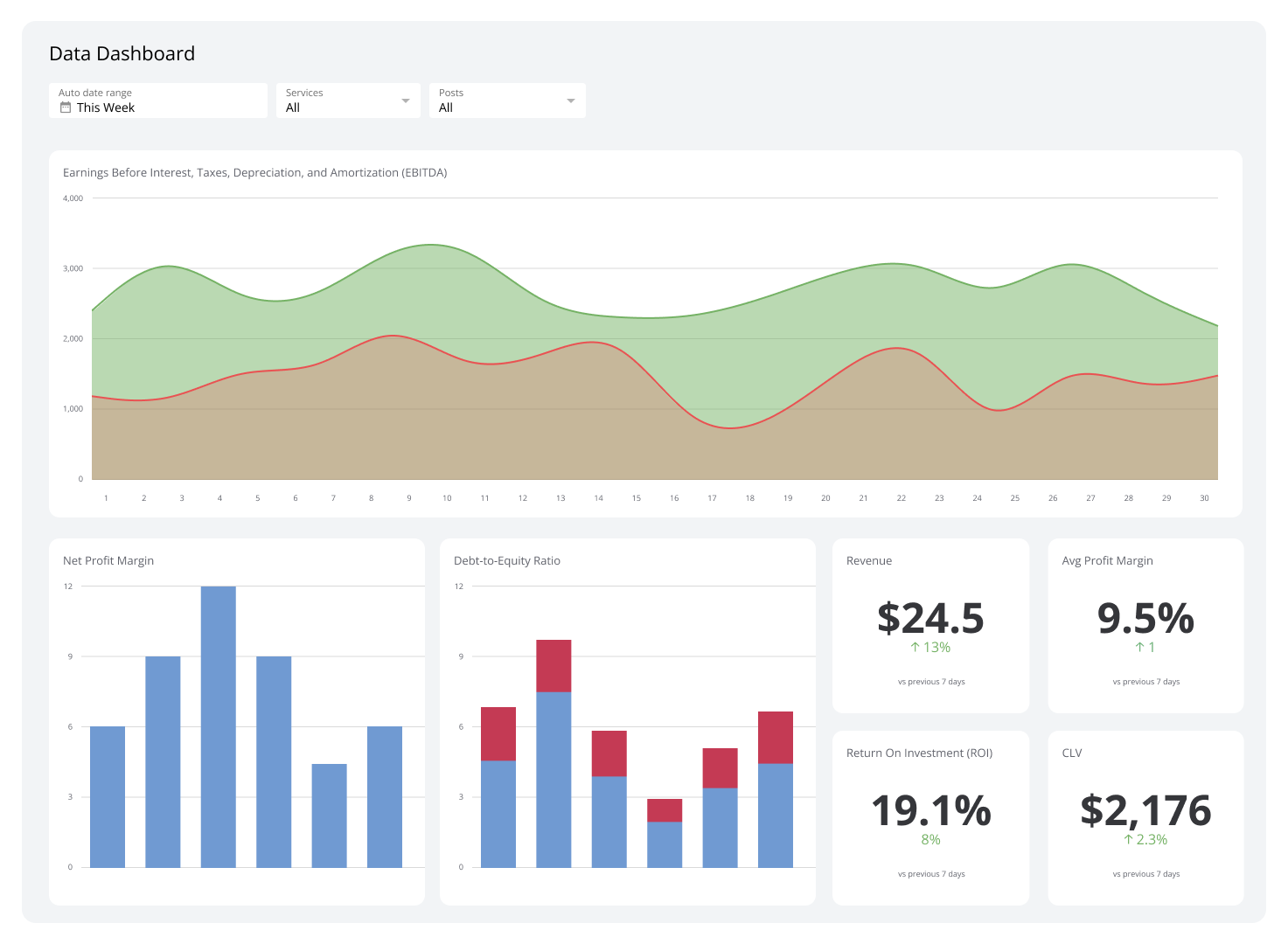Three Ways Unito Uses Data As Rocket Fuel

Published 2025-11-06
Summary - To gain early visibility into bright spots and bumps in the road, Unito's turns to data. Get the deep dive into the metrics they rely on.
– Metric definitions powered by MetricHQ | The community for metrics and KPIs
When you’re travelling at high velocity, small bumps can have a big impact. You need excellent visibility so you can course correct quickly and maintain momentum.
Unito co-founders Marc Boscher and Eryk Warren are no strangers to travelling at high speed. Unito was founded in 2016, sparked by the proliferation of online collaboration and productivity tools, and the productivity paradox that was creating for companies. They’ve been accelerating ever since, most recently fuelled by a $10.5M Series A financing round announced in January 2020, led by Bessemer Venture Partners, with participation from existing investors Mistral Venture Partners, Real Ventures and Tom Williams. Unito’s team, based in Montréal, Canada, now boasts 50 employees and they’re in full growth mode.
Unito enables collaboration across different productivity and collaboration tools like GitHub, Wrike, Asana, Jira, Trello, and more, through easy-to-use, two-way integrations. And to gain early visibility to bright spots and bumps in the road, they rely on data. Really good data. They may even admit to being data-obsessed.
So what does that mean exactly?
At Unito, it means 3 things:
- Measuring two distinct kinds of metrics.
- Implementing a data-driven culture.
- Instrumenting and analyzing metrics.
Let’s peel back the layers on each of these...
1. Measuring two distinct kinds of metrics.
Unito investor Pablo Srugo, of Mistral Venture Partners, shares his philosophy:
“You don’t need to measure 30 things; you want to keep it simple and measure the most important things in 2 key areas: generic metrics and company specific metrics.”
Generic metrics
Generic metrics reveal the health and viability of the business. These get to the heart of whether your go-to-market and demand generation strategies are working, and whether your business is financially viable.
For SaaS companies, Pablo’s short list of generic metrics includes:
- Monthly Recurring Revenue (MRR) *
- Net MRR Churn Rate *
- Gross MRR Churn Rate *
- Cash
- Net burn
- Out of cash date
- Number of employees
*For non-SaaS companies, MRR is replaced with straight revenue metrics.
Unito tracks these metrics, and also monitors key product and marketing metrics, to inform day-to-day operational decision making.
Key Product Metrics include:
Key Marketing Metrics include:
- Website Visits & Source
- Conversion metrics
- Paid Signups (Workspace Sign Ups in Unito’s context)
Company specific metrics
Company-specific metrics speak to the core value and utility of the product. These get to the heart of whether customers are adopting your solution and getting value from it.
For Unito, a key metric here is Active Workflows. Since Unito acts as the glue between different productivity applications, the stronger the glue and the more customers use Unito workflows, the more value they’re getting.
Another one is Number of Connections. Are customers integrating more and more applications over time? If they are, that’s a good proxy for value, since we can assume that’s making collaborating easier.
For another company-specific metric example, take Sensibill. Sensibill provides everyday financial tools like digital receipt management and SKU-level data that helps financial institutions to better understand and serve their customers. A good company-specific metric for Sensibill is the Number of Receipts Captured, as both financial institutions and consumers gain more value as more receipts are captured.
2. Implementing a data driven culture.
If you visualize a journey from “Data Blind” at one end to “Data Driven” on the other, Unito has clearly arrived at “Data Driven”. And it didn’t happen by accident.
Unito has implemented a unique approach that empowers employees across the company to be good data stewards. They’ve built a data-driven culture. Unito has a core data team, responsible for performing advanced data analyses, proactively identifying growth opportunities, building, automating, and monitoring company dashboards, and empowering teams to perform their own data analysis through tooling and training. The data team has in turn enabled a named data leader in every other part of the business. The distributed data leaders are the “voice of the data”, helping ensure a data-driven approach to each new initiative. The data leaders elevate people’s ability to interpret and trust the data. This in turn drives higher data quality, and accelerated, quality decision making across the company.
The data leaders have been a key part of extending the data team’s abilities, and there are frequent discussions in the dedicated #data channel on Slack. The data infrastructure has been built to allow self-serve data explorations as much as possible, and a streamlined data request process lets anyone in the company submit more complex data requests when needed.
Unito created its data team when it had just 30 employees. This meant they needed a small core data team with a wide variety of skills, and that they needed to leverage others throughout the organization to implement the data-driven culture they wanted. The Unito data team is currently composed of a dedicated full-stack developer and a data analyst, with help from other key team members when needed.
3. Instrumenting and analyzing metrics.
Of course it’s not enough to just track data. When you’re travelling at velocity and navigating a constantly changing environment, you need responsive, easy-to-read instrumentation, so you can calibrate progress, assess risk, and make real-time decisions.
For Unito, Klipfolio Klips provides the instrumentation needed to gain visibility into key metrics. Klips is dashboard and reporting software that helps leaders and teams understand and improve performance with live dashboards and scheduled reports.
Using Klips also helps Unito avoid a common mistake some companies make. As Klipfolio co-founder and CEO, Allan Wille points out,
"Companies can fall into the trap of relying on averages. Averages mask all the trends. You need to go deeper, do the underlying analysis, to truly gain actionable insight.”
Unito does exactly this by segmenting their data, for example by source of trial or sign-up, such as Trello or Wrike, or by plan type, for example Enterprise, Business, Personal. This exposes key bright spots, where Unito can double down, or key problem areas, that Unito can address with focused precision.
One recent example Unito highlights shows the power of going deeper and doing underlying analysis. And it relates to the nemesis of all SaaS companies: Churn. Unito consistently looks at root causes of churn, so they can take action. Because they’re sophisticated in their data analysis now, they admit they can sometimes overcomplicate things. Going back to basics, and doing some underlying analysis recently, made all the difference.
Unito Growth Specialist Graham Mann shares this story:
“We recently dug into our churn data. We've been working hard with pre-emptive measures to improve our churn, like adding help content and encouraging onboarding sessions with our customer success team. Those measures have been paying off, to the point where when we re-examined our churn reasons, we found that delinquent churn (credit cards failing or expiring) was the largest culprit! We don't want people churning just because they forget to update their credit card.
We've since implemented more measures to help prevent this from happening, like adding in-app notifications, earlier warnings about an upcoming credit card expiry, and so on.
Sometimes we get caught up looking for complicated answers, and analyzing the data reminds us that simple fixes can sometimes be what's needed."
By the way, if you have a high percentage of payments processed through credit cards, Klipfolio recommends tracking Payment Acceptance as a metric. You can compare yourself to industry benchmarks, and take action if you’re below where you should be here.
Unito is clearly on an exciting path, travelling at high speed. By uniting a focus on two kinds of metrics, a data-driven culture, along with instrumentation and analysis, they’re successfully navigating the bumps in the road. Can they unite your productivity tools and help you accelerate?
Three steps to becoming more data driven in your organization
- Create a short list of metrics that you want to track to start. Include generic and company specific metrics.
- Get organized around data. Identify data leader(s) and data champions, then build an understanding of and confidence in your data.
- Instrument your data and display it in interactive dashboards. Then let your curiosity guide your analysis.
Visit Unito here.
Instrument your data journey with Klipfolio Klips.
Related Articles

The 9 Reddit KPIs You Should Be Tracking
By Mark Brownlee — September 17th, 2025
What is a data dashboard?
By Emily Hayward — August 18th, 2025
What is Product-Led Growth?
By Emily Hayward — May 12th, 2025

